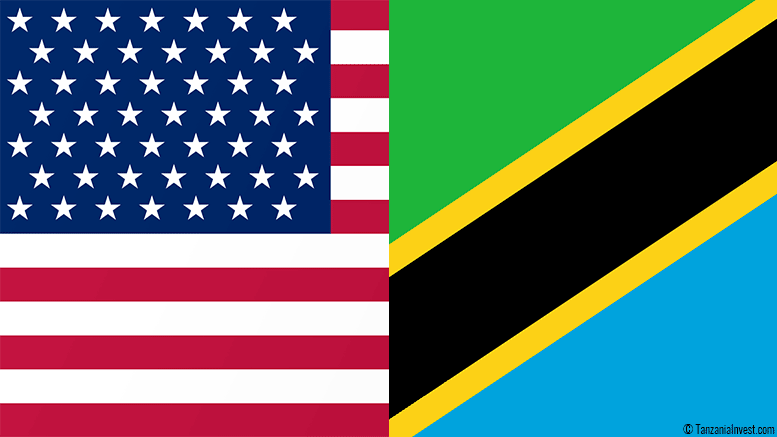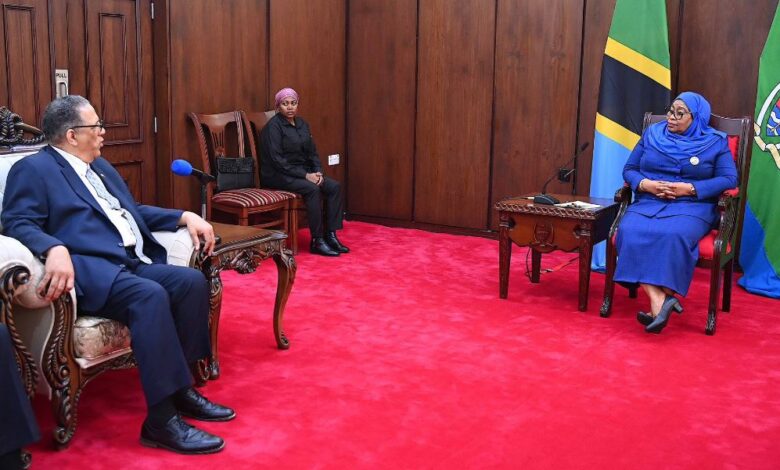

NEWLY appointed American Ambassador to Tanzania Michael Battle has listed his top priorities for promoting trade and investment between the two countries during his tenure in office.
The former US Ambassador to the African Union said he would work with the government of Tanzania and its people to expand trade opportunities.
According to him, all US ambassadors are responsible for maintaining close ties between Tanzania and the US government, including strengthening good relations that have existed since the era of Mwalimu Julius Nyerere in 1960s.
“I was very pleased when I met President Samia Suluhu Hassan and mentioned to her that my primary focus during my stay here will be on trade and investment, and she told me that it is about time and Africa has been waiting for us to take action and be intentional about this,” he stated.
Furthermore, Dr Battle emphasised that no government can hire the entire educated workforce on the continent, thus private investment plays a crucial role in creating industry and corporate leadership that generates jobs and value-added productivity.
In an interview broadcast on TBC1 yesterday, he said that Tanzania may be able to export value added products to other countries by converting its natural resources into value added products.
Agricultural commodities, minerals, and textiles dominate Tanzania’s exports to the US while imports from the US include aircraft, machinery, cereals, plastics, and milling products.
Tanzania receives preferential trade benefits under the African Growth and Opportunity Act.
According to the US embassy in Tanzania website, US and Tanzania boast one of the largest trade relationships in the world, with bilateral investment and trade totaling 1.6 trillion US Dollars annually.
In December 2022, the top exports of US to Tanzania were vaccines, blood, antisera, toxins and cultures, tractors, stone processing machines, poultry meat, and packaged medicaments where during the same period the top imports of US from Tanzania were precious stones, non-knit women’s suits, non-knit men’s suits, coffee, and knit t-shirts.
During the US-Africa Leaders Summit in December last year, the Biden-Harris administration said it plans to invest at least 55 billion US Dollars in Africa over the next three years, working closely with Congress.
The US government and the African Continental Free Trade Area (AfCFTA) Secretariat signed a Memorandum of Understanding to expand engagement to promote equitable, sustainable, and inclusive trade; boost competitiveness; and attract investment to the continent.
Once fully implemented, the Agreement Establishing the African Continental Free Trade Area will create a combined continent-wide market of 1.3 billion people and 3.4 trillion US Dollars, which would be the fifth-largest economy in the world.
For a long time, the envoy said the US relationship with Africa has been a relationship of donor and giving aid. “We are still the largest private donor to Tanzania in terms of the amount of money we spend in healthcare and development and we think that is important,” he said.
Dr Battle said there was also a shift that began with President Barack Obama who said the US relationship with Africa must be one of strategic partnership where there is mutual growth and development.
“So, then the notion of trade and investment began to be more prominent, ‘Prosper Africa’ was part of that notion that in order for Africa to take off with its own industrial revolution it has to have the electrical grid to make it possible,” he explained.
He says that the Biden administration has reverted to the idea that trade and investments are the defining characteristics.
Under Obama and now intentionally again under Biden, he said they have embraced Africa 2063 because it is the mandate of the African Union.
In his comments, Dr Battle commended Tanzania for managing to live in a diverse country without experiencing internal strife as it occurs in other parts of the world.
“A great deal of work has been done by Tanzania to demonstrate what unity and diversity can look like,” he said.
Source here
